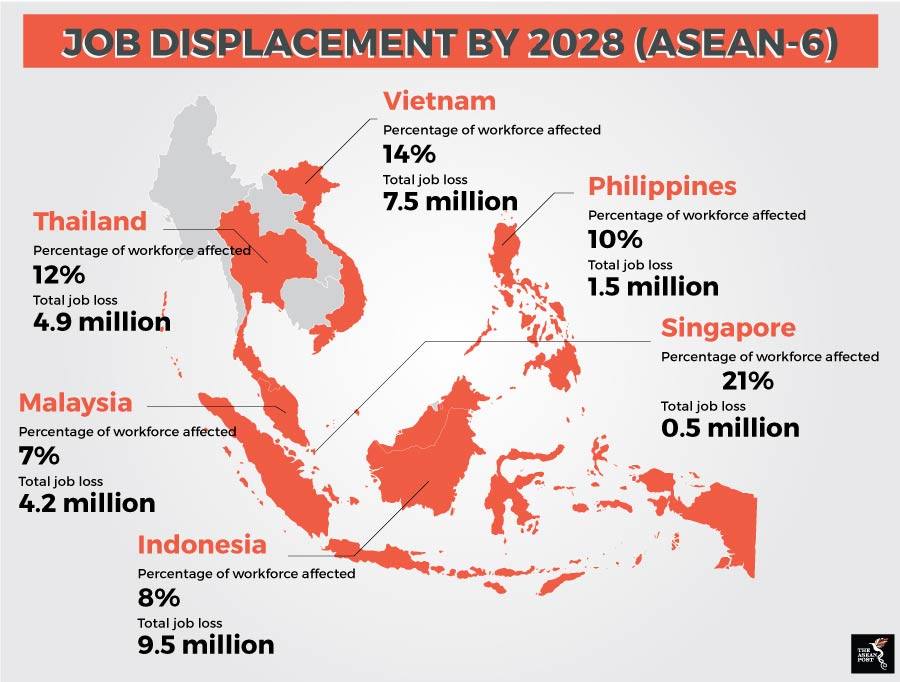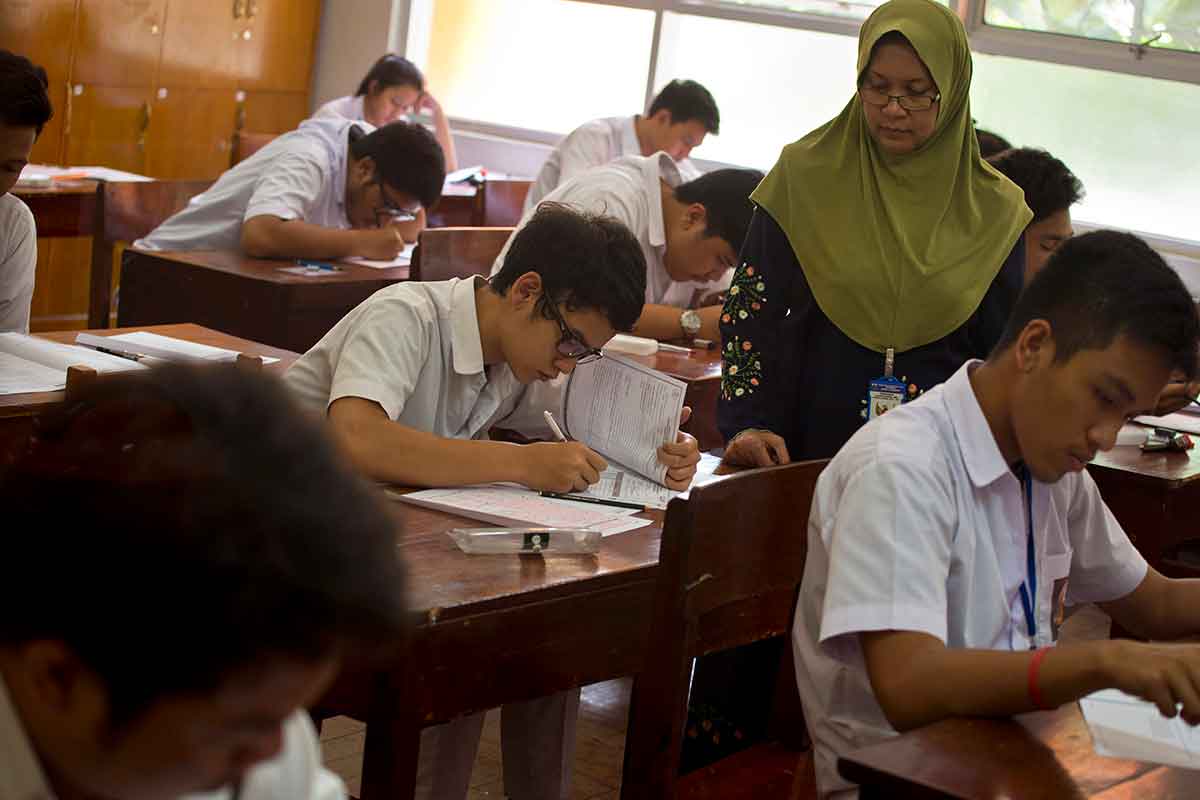Earlier in September, Cisco and Oxford Economics analysed 433 occupations across 21 industries. Looking at the ASEAN-6 countries (Indonesia, Malaysia, Philippines, Singapore, Thailand and Vietnam), the study found that it will take 28 million fewer workers across these economies — more than 10 percent of the current ASEAN-6 workforce — to produce the same level of output as today, and that 6.6 million jobs will become redundant through more widespread adoption of technology by 2028.
Perhaps taking a cue from this (seemingly apocalyptic prophecy) of job displacement in the region; on 19 November, a coalition of major technology companies pledged to develop digital skills for the ASEAN workforce. This pledge is part of the World Economic Forum’s (WEF) Digital ASEAN initiative and aims to train some 20 million people in Southeast Asia by 2020, especially those working in small and medium-size enterprises (SMEs).
WEF head of Asia Pacific and Member of the Executive Committee Justin Wood noted that Industry 4.0, also known as the Fourth Industrial Revolution, was unfolding at accelerating speed and changing the skills that workers will need for the jobs of the future.
“These changes are happening just as the working-age population in ASEAN is expanding by 11,000 people every day – a rate that will continue for the next 15 years. Given these trends, it’s critical that businesses help to build digital skills in ASEAN,” he said.
Called “ASEAN Digital Skills Vision 2020”, the public pledge is open for all companies to join but a number of early champions have already made strong commitments. Google has pledged to train 3 million SME employees throughout the ASEAN region by the end of 2020, while Cisco, Lazada, Microsoft, and the Sea Group have pledged to train another 5,634,000 SME workers.
The fact that some of the most innovative companies in the world are taking on the pledge is certainly a promising and welcomed sight. However, a key component to upgrading skills in the region is the ability to think critically, and this is where some countries might have a problem. Without embedding critical thinking in education, future generations might find it difficult to adapt to new technologies.
 Source: Cisco and Oxford Economics
Source: Cisco and Oxford Economics
Critical thinking in ASEAN
Author Ellen Galinsky explains in her book “Mind in the Making: The seven essential life skills every child needs”, that a child’s natural curiosity helps lay the foundation for critical thinking. She also notes that critical thinking entails taking in information, analysing it and making judgements about it. These activities, according to Galinsky, requires imagination and inquisitiveness, traits which come naturally to a child.
Galinsky has also been on the faculty of Bank Street College of Education in New York City for over twenty years. She directs many national and international research projects there and is a consultant on child and adult development to day-care programs, corporations, and the media.
Based on Galinsky’s assertions, it would seem that critical thinking is best nurtured while one is young. The problem with this is that countries like Indonesia and Thailand don’t have the best education systems in the world.
Apart from Indonesia’s consistently low rankings in the Programme for International Student Assessment (PISA) results, numerous reports have also indicated that there exists a problem plaguing Indonesian schools. A report entitled “Beyond access: Making Indonesia’s education system work” from the Sydney-based Lowy Institute found that one of the main problems with Indonesia’s education system stems from “politics and power”. The report claims that there is little incentive for old elites to drastically overhaul the country’s education system, arguing that they would rather exploit it to “accumulate resources, distribute patronage, mobilise political support, and exercise political control.”
Meanwhile, Thailand’s education system is so poor that it’s inspired a recently highlighted rap song entitled “Equality”.
Rankings across the board paint a bad picture of Thailand’s education system as well. Thailand's educational system is ranked 35th among 40 countries included in a report published by Pearson Education. In the latest Programme for International Student Assessment (PISA) score results in 2016, Thailand is ranked 55th out of 72 countries in the overall results. In maths and science, Thailand is ranked 54th, and 57th for reading.
While ASEAN stands to gain a lot of benefit from the ASEAN Digital Skills Vision 2020 in the face of the growing threat of job displacement, an integrated effort is required. ASEAN governments and public institutions must to do their part in ensuring that they create an environment where critical thinking is nurtured in the hearts and minds of the nation and that should begin as early-on in life as possible.
Related articles:
